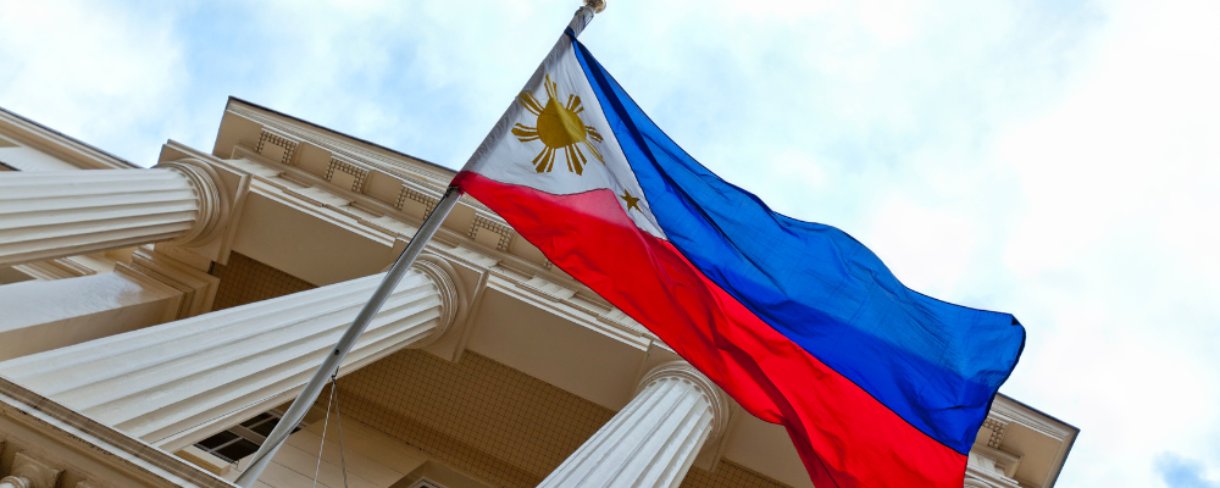
- The Philippines SEC has warned Binance for operating without the necessary approval or license, citing the absence of registration and required authorization to sell securities in the country.
- The SEC’s announcement highlights the stringent regulatory requirements under the Philippines’ Securities Regulation Code (SRC).
- The warning reflects broader challenges in the global regulatory landscape for cryptocurrency exchanges.
The Philippines Securities and Exchange Commission (SEC) warned against Cryptocurrency Exchange Binance on November 28, revealing that the platform has been operating in the country without the required approval or license. The announcement highlighted Binance’s lack of authorization to sell or offer securities in the Philippines.
It emphasized the necessity for exchanges like Binance to undergo registration and provide comprehensive details about the securities they offer before making them available to the public. This includes information such as issuance price, the nature of securities, and other pertinent data.
The Philippines’ Securities Regulation Code (SRC) further mandates that securities issuers must be registered in the country before being presented for investment. Additionally, issuers are required to obtain a secondary license to sell or offer securities to the public. The SEC’s statement explicitly stated that, based on their database, Binance’s operator is not registered as a corporation in the Philippines and operates without the necessary license or authority to sell or offer any form of securities as defined under Section 3.1 of the SRC.
In addition to the absence of a required license, the SEC accused Binance of illicitly promoting its services within the country. The regulator cautioned that entities promoting or trading on Binance may face criminal liability under Section 28 of the SRC. This criminal offense carries severe penalties, including a fine of up to 5 million Philippine pesos (approximately $90,300), imprisonment of 21 years, or both, as specified under Section 73 of the SRC.
RELATED: Crypto Landscape Rattled: Binance CEO CZ’s Shocking Plea Deal
Despite prior warnings, Binance has reportedly remained a central cryptocurrency trading platform in the Philippines. Some users have even praised its local services as “reliable and stable” on social media, highlighting the platform’s popularity in the region.
However, a cautious sentiment has also emerged among users, with one Reddit commentator suggesting that Philippine authorities might follow the regulatory decisions of the United States SEC regarding Binance’s legal status. The commentator noted the ongoing legal challenges faced by Binance in the United States, stating that if the platform loses in those cases, its operations in various countries, including the Philippines, could face significant challenges.
This development in the Philippines comes from Binance CEO Changpeng Zhao’s recent guilty plea in a U.S. court for violating Anti-Money Laundering laws. Zhao also stepped down as the CEO, signaling a pivotal moment for the cryptocurrency exchange. Additionally, the Philippines SEC’s collaboration with the U.S. SEC in September 2023 to combat crypto fraud underscores the growing global efforts to regulate and monitor the cryptocurrency industry.
In conclusion, the warning issued by the Philippines SEC against Binance highlights the challenges cryptocurrency exchanges face in navigating regulatory landscapes across different jurisdictions. The potential legal repercussions and the evolving global regulatory environment indicate a need for increased compliance and transparency within the cryptocurrency industry. As Binance confronts legal issues in various countries, the outcomes of these cases will likely shape the future regulatory framework for cryptocurrency exchanges worldwide.
READ; Nigeria and South Africa: Leaders of the Crypto and Web3 Revolution in Africa
The Philippines SEC’s warning to Binance also raises broader questions about global regulatory oversight and the global framework for cryptocurrency exchanges. As digital assets gain prominence in the financial landscape, regulatory authorities grapple with balancing fostering innovation and protecting investors. Binance, one of the largest and most influential cryptocurrency exchanges globally, serves as a litmus test for how regulatory bodies worldwide respond to the evolving challenges posed by the burgeoning cryptocurrency sector.
In the wake of Binance’s legal struggles, the cryptocurrency community is closely watching for developments that could set precedents for the industry’s future. The outcomes of regulatory actions against Binance may influence the regulatory approaches adopted by other countries, potentially leading to a more standardized and cohesive global regulatory framework for cryptocurrency exchanges.
While cryptocurrencies’ decentralized and borderless nature poses challenges for regulators, it also underscores the need for international collaboration to address the complexities of this rapidly evolving financial landscape. As Binance navigates the legal landscapes of various countries, the broader implications extend beyond the fate of a single exchange, shaping the regulatory trajectory for the entire cryptocurrency ecosystem.
- SEO Powered Content & PR Distribution. Get Amplified Today.
- PlatoData.Network Vertical Generative Ai. Empower Yourself. Access Here.
- PlatoAiStream. Web3 Intelligence. Knowledge Amplified. Access Here.
- PlatoESG. Carbon, CleanTech, Energy, Environment, Solar, Waste Management. Access Here.
- PlatoHealth. Biotech and Clinical Trials Intelligence. Access Here.
- Source: https://web3africa.news/2023/12/06/news/binance-accused-in-philipines/
- :has
- :is
- :not
- $UP
- 1
- 2023
- 28
- 7
- a
- About
- accused
- across
- actions
- addition
- Additionally
- address
- adopted
- africa
- against
- also
- AML
- among
- and
- Announcement
- anti-money laundering
- any
- approaches
- approval
- approximately
- ARE
- AS
- Assets
- Authorities
- authority
- authorization
- available
- balancing
- based
- BE
- been
- before
- being
- Beyond
- binance
- Binance CEO
- bodies
- borderless
- both
- broader
- burgeoning
- by
- cases
- cautious
- central
- ceo
- challenges
- closely
- code
- cohesive
- collaboration
- combat
- comes
- commentator
- commission
- community
- complexities
- compliance
- comprehensive
- conclusion
- CORPORATION
- could
- countries
- country
- Court
- Criminal
- crypto
- crypto fraud
- cryptocurrency
- cryptocurrency ecosystem
- Cryptocurrency Exchange
- Cryptocurrency Exchanges
- Cryptocurrency Industry
- cryptocurrency trading
- CZ’s
- data
- Database
- decentralized
- decisions
- defined
- details
- Development
- developments
- different
- digital
- Digital Assets
- down
- ecosystem
- efforts
- emerged
- emphasized
- Entire
- entities
- Environment
- Even
- evolving
- exchange
- Exchanges
- explicitly
- extend
- Face
- faced
- fate
- financial
- fine
- follow
- For
- form
- fostering
- Framework
- fraud
- from
- further
- future
- Gain
- Global
- Globally
- Growing
- guilty
- guilty plea
- Have
- Highlighted
- highlighting
- highlights
- How
- HTTPS
- if
- implications
- in
- includes
- Including
- increased
- indicate
- industry
- industry’s
- influence
- Influential
- information
- Innovation
- International
- investment
- Investopedia
- Investors
- issuance
- Issued
- issuers
- issues
- IT
- ITS
- jpg
- jurisdictions
- Lack
- landscape
- landscapes
- largest
- Laundering
- Laws
- leaders
- leading
- Legal
- Legal issues
- liability
- License
- like
- likely
- local
- Loses
- Making
- mandates
- May..
- Media
- might
- million
- moment
- Monitor
- more
- most
- MOUNT
- must
- Nature
- navigates
- navigating
- necessary
- necessity
- Need
- noted
- November
- obtain
- of
- offer
- on
- ONE
- ongoing
- operates
- operating
- Operations
- operator
- or
- Other
- outcomes
- Oversight
- Philippine
- Philippines
- pivotal
- platform
- Platforms
- plato
- Plato Data Intelligence
- PlatoData
- plea
- popularity
- posed
- poses
- potential
- potentially
- Praised
- presented
- price
- Prior
- prominence
- promoting
- protecting
- provide
- public
- Questions
- raises
- rapidly
- receives
- recent
- reflects
- regarding
- region
- registered
- Registration
- Regulate
- Regulation
- regulator
- Regulators
- regulatory
- regulatory landscape
- regulatory oversight
- remained
- repercussions
- required
- Requirements
- Respond
- revealing
- Revolution
- s
- SEC
- secondary
- Section
- sector
- Securities
- Securities and Exchange Commission
- sell
- sentiment
- September
- serves
- Services
- set
- severe
- Shape
- shaping
- significant
- single
- Social
- social media
- some
- South
- South Africa
- specified
- stated
- Statement
- States
- stating
- Status
- stringent
- Struggles
- such
- test
- that
- The
- The Future
- The Philippines
- their
- Them
- These
- they
- this
- those
- to
- Trading
- Trading Platform
- trajectory
- Transparency
- true
- u.s.
- U.S. SEC
- under
- undergo
- underscores
- United
- United States
- users
- various
- Wake
- warned
- warning
- watching
- Web3
- Web3 Revolution
- while
- will
- with
- within
- without
- worldwide
- years
- youtube
- zephyrnet
- Zhao













